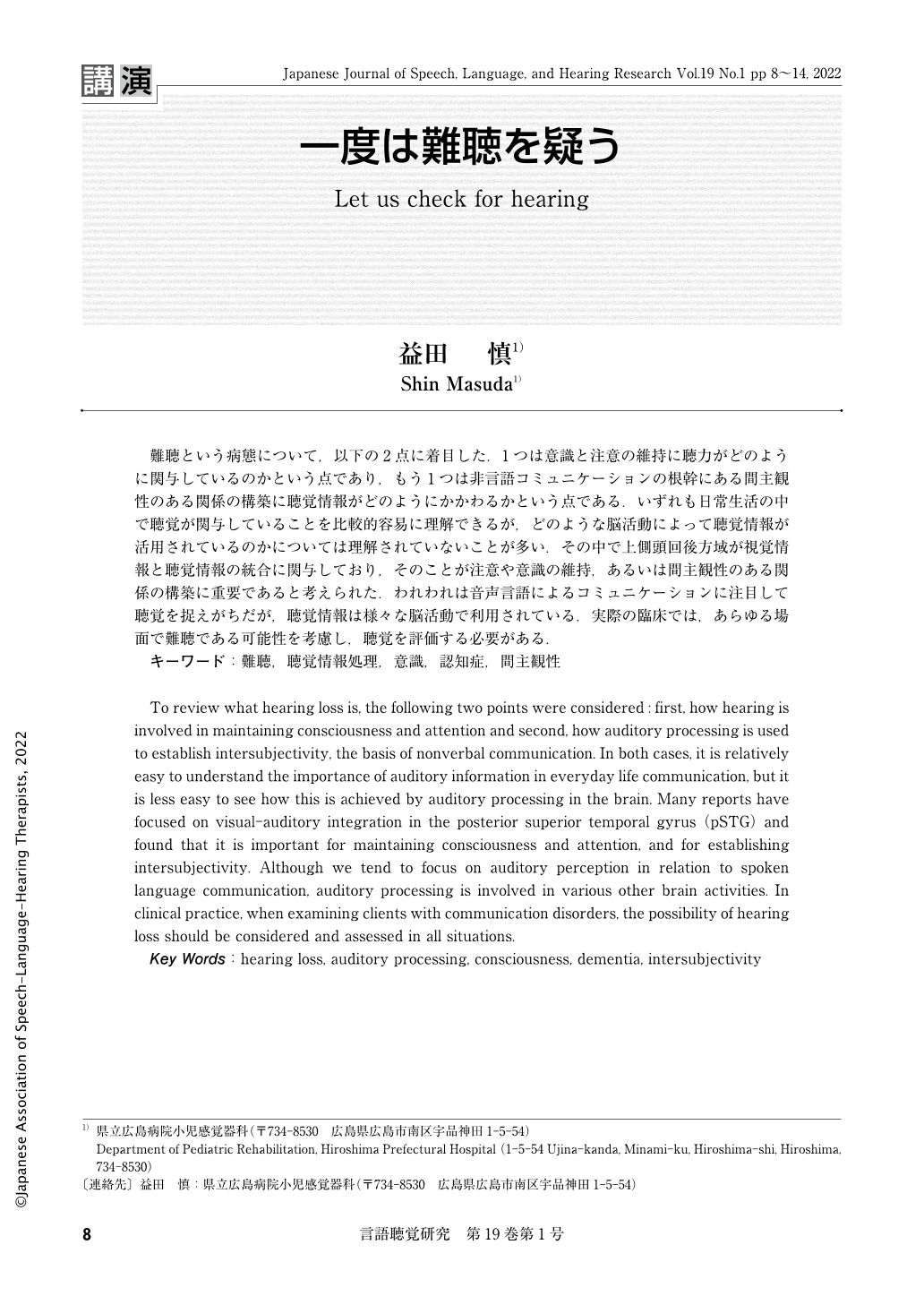Japanese
English
- 有料閲覧
- Abstract 文献概要
- 1ページ目 Look Inside
- 参考文献 Reference
- サイト内被引用 Cited by
難聴という病態について,以下の2点に着目した.1つは意識と注意の維持に聴力がどのように関与しているのかという点であり,もう1つは非言語コミュニケーションの根幹にある間主観性のある関係の構築に聴覚情報がどのようにかかわるかという点である.いずれも日常生活の中で聴覚が関与していることを比較的容易に理解できるが,どのような脳活動によって聴覚情報が活用されているのかについては理解されていないことが多い.その中で上側頭回後方域が視覚情報と聴覚情報の統合に関与しており,そのことが注意や意識の維持,あるいは間主観性のある関係の構築に重要であると考えられた.われわれは音声言語によるコミュニケーションに注目して聴覚を捉えがちだが,聴覚情報は様々な脳活動で利用されている.実際の臨床では,あらゆる場面で難聴である可能性を考慮し,聴覚を評価する必要がある.
To review what hearing loss is, the following two points were considered:first, how hearing is involved in maintaining consciousness and attention and second, how auditory processing is used to establish intersubjectivity, the basis of nonverbal communication. In both cases, it is relatively easy to understand the importance of auditory information in everyday life communication, but it is less easy to see how this is achieved by auditory processing in the brain. Many reports have focused on visual-auditory integration in the posterior superior temporal gyrus (pSTG) and found that it is important for maintaining consciousness and attention, and for establishing intersubjectivity. Although we tend to focus on auditory perception in relation to spoken language communication, auditory processing is involved in various other brain activities. In clinical practice, when examining clients with communication disorders, the possibility of hearing loss should be considered and assessed in all situations.

Copyright © 2022, Japanese Association of Speech-Language-Hearing Therapists. All rights reserved.


